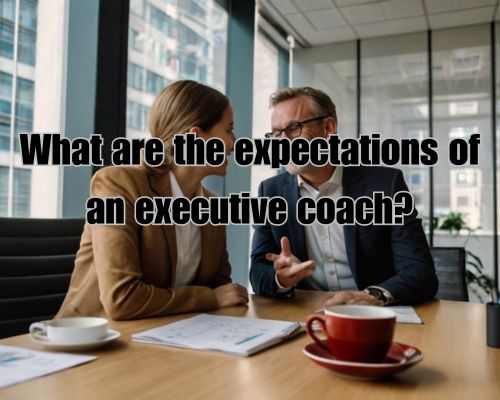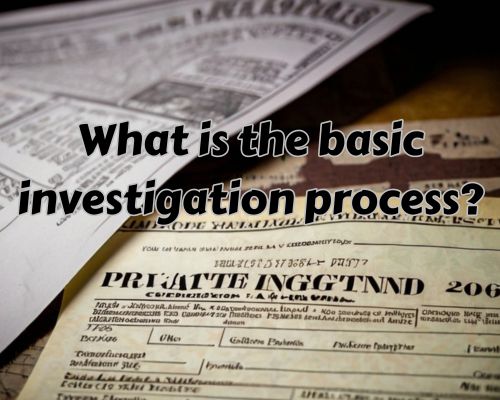When engaging with an executive coach, you should expect a professional like in Make It Happen Coaching dedicated to enhancing your leadership skills and driving professional development. Your executive coach will focus entirely on your growth, aiming to unlock your potential and address specific challenges you face in your role. This tailored approach ensures a personalized experience that aligns with your career goals.

Executive coaching is not just about fixing deficiencies; it’s a forward-looking process to maximize your strengths and capabilities. The presence and commitment of the coach are vital, providing a supportive environment where your development is the prime focus. This relationship fosters a deeper understanding of your professional journey and helps chart a path to achieve significant milestones.
Having clear expectations in executive coaching is crucial. This clarity allows both you and the coach to work towards mutual goals effectively. Setting these expectations ensures a successful partnership that propels you toward achieving a higher level of performance and personal satisfaction in your career.
Core Functions and Responsibilities of an Executive Coach
Based on Make It Happen Coaching, as an executive coach, you play a crucial role in guiding leaders toward achieving their professional goals and overcoming challenges. Your core responsibilities revolve around fostering growth and leadership development, cultivating effective communication and feedback, and driving performance and goal achievement.
Fostering Growth and Leadership Development
A significant aspect of your role involves identifying and leveraging the strengths and weaknesses of the leaders you coach. By recognizing these areas, you offer tailored strategies for both personal development and professional growth. Your support enables leaders to expand their skill set, build confidence, and tackle workplace challenges more effectively.
You provide a structured environment where leaders can explore their potential and challenge themselves. This includes setting achievable goals that promote continuous growth and aligning coaching efforts with the overall vision of the organization. Your expertise in leadership development helps create a resilient and adaptable leadership pipeline.
Cultivating Effective Communication and Feedback
Effective communication is essential for any leadership position, and enhancing these skills is a key responsibility. You help leaders refine their listening skills, ensuring they understand and respond appropriately to their team’s needs. This enhances trust within the coaching relationship and cultivates a productive work environment.
Another critical aspect is the provision of constructive feedback. You train leaders to give and receive feedback that is specific, actionable, and focused on performance improvement. This fosters a culture of open communication and continuous reflection, essential for personal and organizational growth.
You also encourage leaders to develop strong interpersonal skills, which aids in conflict resolution and promotes a collaborative atmosphere in the workplace.
Driving Performance and Goal Achievement
Your role is instrumental in setting and achieving performance goals. You guide leaders through effective goal-setting processes, ensuring that goals are realistic, measurable, and aligned with the organization’s objectives. This includes creating accountability structures and timelines that help track progress and maintain momentum.
You work closely with leaders to identify performance metrics and develop strategies to meet or exceed these targets. Your coaching aims to instill motivation and a sense of ownership, making goal achievement a more structured and less daunting process.
By providing consistent support and challenging leaders to push beyond their comfort zones, you help them realize their full potential and enhance overall organizational performance.
Key Elements of a Successful Coaching Engagement
A successful coaching engagement hinges on elements such as trust, commitment, and alignment with goals and values. These factors are critical for fostering growth and achieving meaningful results.
Building Trust and a Safe Coaching Environment
Trust is the foundation of any effective coaching relationship. Confidentiality and a non-judgmental space are paramount for discussing sensitive leadership challenges. According to the International Coaching Federation (ICF), professional coaches must adhere to a strict code of ethics, ensuring that your conversations remain private. Building rapport takes time, but it’s essential for establishing a safe environment where you can openly share your thoughts and concerns. Without trust and safety, it’s challenging to delve into the deeper issues impacting your leadership effectiveness.
Understanding the Commitment: Time, Investment, and ROI
Executive leadership coaching often involves significant investment and time commitment. Engagements typically last between 3 to 18 months, with an average duration of 9 months. Regular sessions, usually weekly, are common to maintain momentum. The cost can be substantial, reflecting the expertise of highly qualified professional coaches. However, the return on investment (ROI) can be considerable, offering improvements in leadership skills, decision-making, and overall organizational impact. Before engaging in coaching, consider the financial and time resources you are willing to commit and weigh them against the potential gains.
Evaluating Alignment with Professional Goals and Organizational Values
For a coaching engagement to be effective, it must align with your professional goals and the values of your organization. Begin by identifying what you want to achieve through coaching — whether it’s enhancing specific leadership skills or preparing for a higher role. Ensure that your coaching objectives are in harmony with your company’s mission and culture. This alignment not only facilitates personal growth but also supports broader organizational aims. Collaboration with your coach can provide clarity and help prioritize goals that are both personally meaningful and professionally beneficial.
